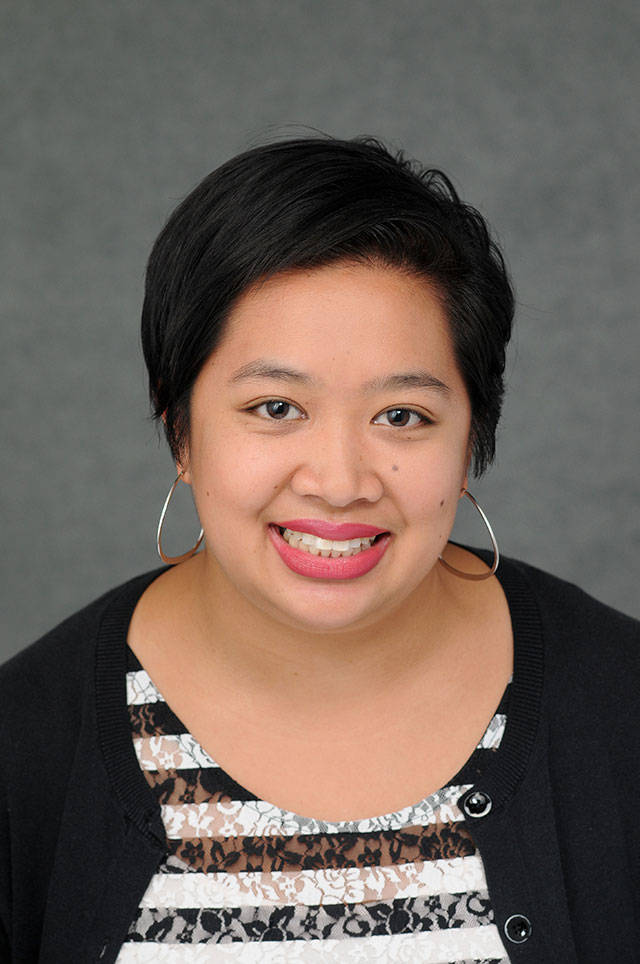For many in the Pacific Northwest, Bainbridge Island is probably just a nice place to visit on a weekend or bring out-of-town guests.
But the island was also the origin of the Japanese American internment during World War II.
In March 1942, hundreds of Japanese Americans were forcibly removed from their homes on Bainbridge Island by the U.S. Army. And those who were away from the island at the time were not allowed to return. They were sent to camps at Manzanar, California and some were later transferred to camps at Minidoka, Idaho. This marked the beginning of a national strategy that had more than 120,000 Japanese American men, women and children forcibly removed and incarcerated during the second World War. Other Japanese Americans from Washington state ended up in camps in other states including Wyoming and Arkansas.
Clarence Moriwaki, president of the Bainbridge Island Japanese American Community, shared this piece of local history at Cascadia College in Bothell on Feb. 5. His talk was part of the Humanities Washington (HW) Speakers Bureau program, which features “free public presentations on history, politics, music, philosophy, spiritual traditions, and everything in between,” according to the HW website.
During his talk, Moriwaki shared a bit of the history of the Japanese and Japanese American community on the island. He discussed how the Japanese coming to the island differed from members of the Chinese and Filipino communities. Moriwaki said the Japanese came because of an economic recession and many were professionals and entrepreneurs, starting local businesses including a hotel, restaurant, bathhouse and grocery store.
He also described what it was like for the local community in the aftermath of the Japanese attack on Pearl Harbor on Dec. 7, 1941.
“On Feb. 4, 1942, they came to Bainbridge Island, the FBI, along with every Kitsap County Sheriff’s deputy, plus the Washington State Patrol, and hit all 50 homes simultaneously,” he said about law enforcement targeting the island’s Japanese households.
Moriwaki said law enforcement was able to do this through information from the Census Bureau “and other places,” adding that since the 1930s, anyone with at least one-sixteenth Japanese ancestry was entered into a database. He said this was because since the Japanese invasion of Manchuria, there was a fear that the Japanese might move east, toward the states.
“And every time a new Japanese American baby was born, a brand new file was created,” he said.
And before you stop to wonder, Moriwaki said this was all done unconstitutionally.
But in spite of what the government and law enforcement were saying about the Japanese Americans on the island, Moriwaki shared how Bainbridge Islanders stood by their neighbors however they could.
“In this story that is not one of America’s finest hours, at least that’s something we can celebrate. That one community did stand up,” he said, later adding, “Bainbridge proved that we believe in the American spirit. We can do the right thing.”
Moriwaki also touched on the 442nd Infantry Regiment, the fighting unit that was almost entirely made up of second-generation, or nisei, Japanese American soldiers, who fought during World War II. He also brought up “no-no boys,” young men who answered “no” to two questions on a loyalty questionnaire that had to do with their willingness to serve on combat duty wherever ordered and their willingness to not take action that would in any way interfere with the war effort of the United States.
Having a “no-no boy” for a son or brother was the cause of much friction within Japanese American families.
And while these events are a part of our history, they weren’t that long ago. Pearl Harbor happened 79 years ago this December.
There’s that saying about how people who do not learn history are doomed to repeat it (I’m paraphrasing) and Moriwaki shared that sentiment.
“If this democracy [with an] extraordinary constitution could imprison people only because of their ethnic background, it could happen again. It could happen to anyone, black, brown, yellow or white,” he said.
With this in mind, Moriwaki noted some of the things our country is going through right now such as family separations at the southern border, the immigration ban and search and seizure without a warrant.
“This is not a new thing in American history,” he said. “It has happened. It took 60 years for the government to finally apologize and learn their mistakes. So, give the nation credit for at least doing that. But it should not take decades to figure it out…We cannot let it happen again. It is happening as we speak. It’s wrong then. It’s definitely wrong now because we should know better.”
Windows and Mirrors is a bimonthly column focused on telling the stories of people whose voices are not often heard. If you have something you want to say, contact editor Samantha Pak at spak@soundpublishing.com.



